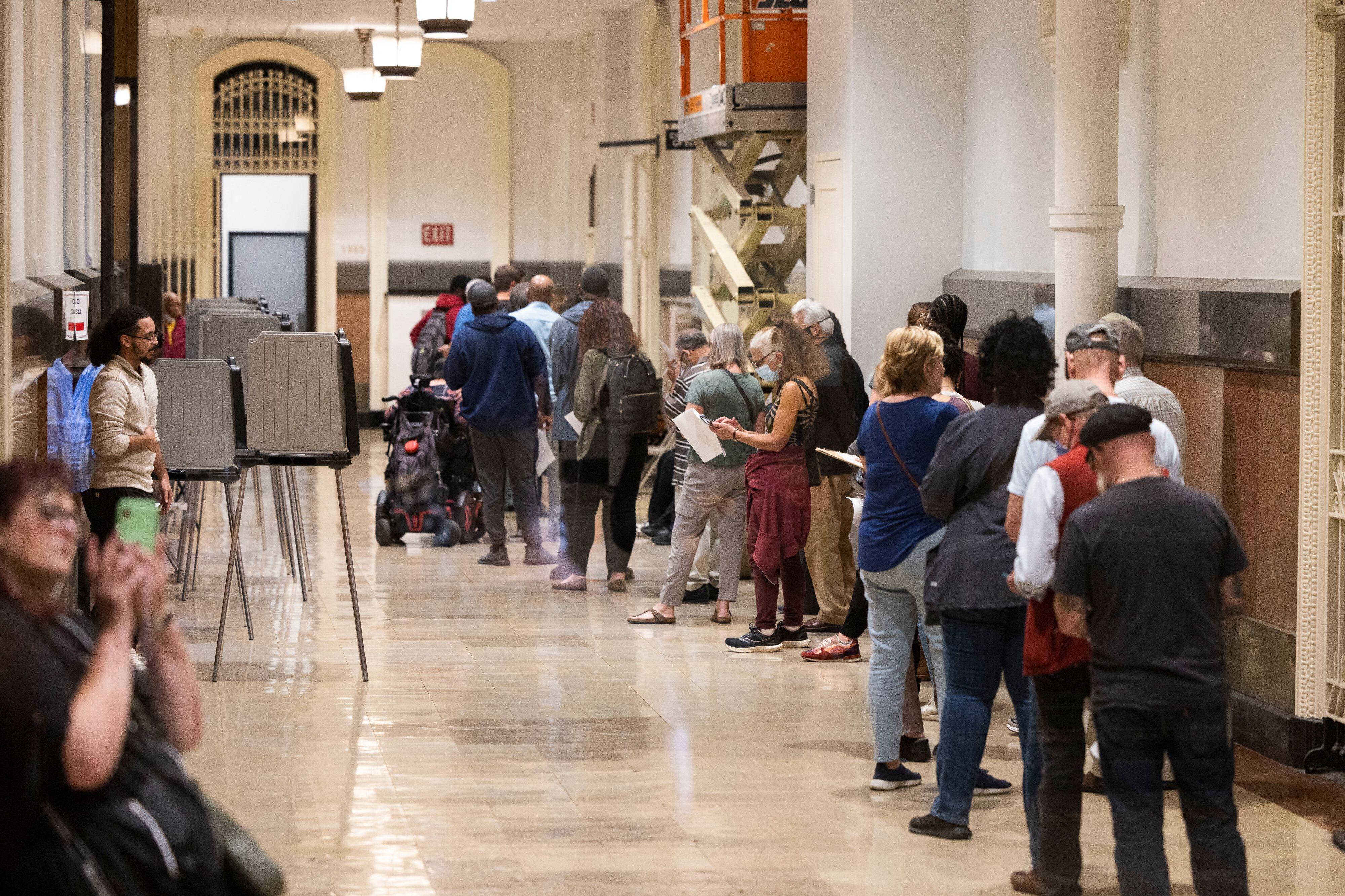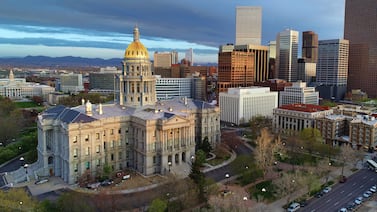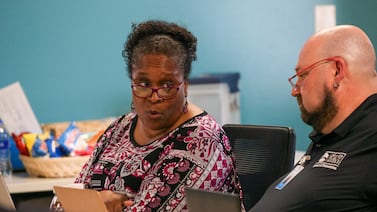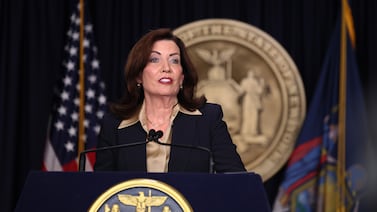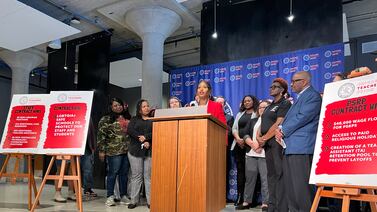In this year’s midterm elections, when control of Congress is up for grabs and the president says that democracy itself is on the line, how much do education issues really matter? Quite a bit, it turns out.
The economy, abortion, and crime top the list of voter concerns, but schools are important too. In a Pew Research Center survey last month, 64% of registered voters said education is very important in how they’ll vote in the Congressional elections, while other polls show that education is a key consideration in local and state elections.
Republicans have also seized on schools as a way to put a focus on hot-button issues involving race and sexuality, which they believe will mobilize their base and attract swing voters. But some Democrats say the other party overplayed its hand, turning off moderates who care more about school quality and student safety.
The most drama has unfolded in statewide races, where education tends to play a bigger role than in federal elections but national issues still shape the debate. Education has featured prominently in three battleground states with extremely tight races for governor: Arizona, Michigan, and Wisconsin.
In each, the central education themes of this election cycle have been on full display, including ideological clashes over curriculum and parents’ rights as well as longstanding debates about school funding and choice. And, in what might be this moment’s defining trend, those three gubernatorial races exemplify how thoroughly the country’s divisive politics have infused education policy, replacing occasional bipartisanship with fierce tribalism.
“Across the board, K-12 educational issues are becoming more polarized by partisanship,” said Sarah Reckhow, a political science professor at Michigan State University who studies education policy.
“Only 10 or 15 years ago,” she added, “partisan differences on education weren’t so clear cut.”
Arizona: Culture wars
Nowhere is the partisan split over schools wider than in Arizona’s closely watched race for governor, where a conventional liberal candidate is running against a far-right firebrand.
Kari Lake, the Republican nominee, has thrilled conservatives with her Trump-style populism. And, similar to the former president and Florida Gov. Ron DeSantis, Lake has leaned heavily into the school culture wars.
In her education plan, she rails against mandatory face masks and COVID vaccines, accuses schools of stoking “race-based animosity” by teaching critical race theory, and claims that some educators want to convert students into “progressive activists” and push “their sexuality or personal sexual preferences on little children.”
If the Democratic candidate is elected, “your kindergartner wouldn’t learn the Pledge of Allegiance, but your precious 5-year-old would be taught about sex,” Lake, a former local news anchor, said in a misleading campaign video.
Lake’s opponent, Arizona Secretary of State Katie Hobbs, has shied away from hot-button education issues. Instead, she has focused on traditional Democratic priorities, such as universal preschool, teacher pay raises, and school building repairs.
“What I’m hearing most from people is they want us to fund our public schools,” she told her supporters.
Polling suggests that Hobbs’ agenda reflects the concerns of most Arizona voters. In a May survey commissioned by the nonpartisan group Education Forward Arizona, two-thirds of likely voters said school funding is too low, while only one third said they strongly support a ban on teaching critical race theory, or CRT.
The Arizona poll is in line with national surveys that find most Americans support universal preschool and higher teacher salaries, worry about under-funding of public schools, and oppose book banning. The public is much more divided over what students should learn about race, but voters tend to agree that politicians from both parties are overly focused on how race and gender are taught in schools.
In a September memo, the Republican National Committee warned candidates not to alienate moderate voters, saying that “CRT and masks” might energize their base, “but parental rights and quality education drive independents.”
Michael Petrilli, president of the right-leaning Fordham Institute, said it was interesting that candidates like Lake had chosen not to moderate their message in the general election.
But if she wins, he added, “then her strategy of playing up these culture-war issues, in education and otherwise, will be validated.”
Michigan: School choice
When Tudor Dixon, a Trump-backed Republican running to become Michigan’s next governor, talks about “parents’ rights,” it’s usually in the context of the school culture wars.
But she’s also campaigned against Democratic incumbent Gretchen Whitmer on a more traditional conservative take on parents’ rights: The prerogative to choose the best school for your child. She supports giving parents publicly funded scholarships to help them pay for private school.
School choice has often been overshadowed this election cycle by clashes over race and sex in schools, but it remains a staple of conservative candidates’ agendas. Republican candidates in this Tuesday’s 36 gubernatorial races were more likely to include school choice on their campaign websites than any other issue, according to an analysis by Andy Smarick, a senior fellow at the conservative Manhattan Institute.
One reason for the issue’s enduring popularity among candidates is that most Republicans support charter schools and, to a lesser degree, private-school vouchers. But equally important to candidates is the enthusiasm for school choice among the party’s biggest donors.
Nowhere is that more evident than in Michigan, where Betsy DeVos, one of the country’s most prominent and polarizing champions of school choice, and her family have poured millions of dollars into a group supporting Dixon’s campaign. For her part, Dixon has endorsed DeVos’s private-school choice plan, which critics say would undermine the public school system.
“It is time to fund students, not systems,” Dixon said at a campaign event last month, echoing a phrase used by DeVos and other choice advocates.
Other Republican candidates have also embraced the idea of using taxpayer money to cover the cost of private school, homeschooling, or whatever option families choose. Lake in Arizona said she wants to “fund students not systems;” Gov. Greg Abbott, who is running for reelection in Texas, said he supports “state funding following the student”; and Tim Michels, the Republican nominee for governor of Wisconsin, has called for “universal school choice.”
While popular with some voters, this message also poses risks. Democrats in each of those races have accused their opponents of seeking to defund public schools, which remain popular among parents.
“The most important rule in education politics is that most kids go to traditional public schools and their families like those schools,” said Petrilli of the Fordham Institute. “If you get painted as somebody who is anti-public education, that’s a real problem.”
Wisconsin: School funding
While Republicans hammer away at hot-button education issues, Democrats have stuck to the basics: more resources for public schools and students.
Increased school spending is a perennial focus for Democrats and their powerful allies, the national teachers unions. But, the candidates argue, there’s an urgent need for more resources now as schools respond to the pandemic’s ongoing fallout — including staff shortages, mental health challenges, and academic setbacks.
More money for schools was the most common education priority on the websites of Democratic gubernatorial candidates, according to Smarick.
Exhibit A is Wisconsin, where Gov. Tony Evers has staked his bid for a second term largely on the issue of school funding. He has touted historic increases in state education spending during his tenure. In August, he unveiled a plan to give schools an extra $90 million in federal aid to help with teacher hiring and mental health services. And in September, he called on the state legislature to expand education spending by about $2 billion in its next budget.
“Kids need more support and resources now more than ever,” said Evers, who was previously the state’s education chief and a public school teacher.
Pointing to the record $190 billion that Congress provided schools during the pandemic, Republicans argue that money isn’t the problem. Schools are struggling, they argue, because Democrats pushed for prolonged school closures during the pandemic.
“Evers wants his big checks to make people forget his big failures,” said Evers’ Republican opponent, Tim Michels.
But Democratic strategists say their candidates’ priorities reflect the will of most voters. National polls show that likely voters favor more funding for schools and mental health services for students. In Wisconsin, a recent Marquette Law School poll found that, when given a choice of whether to increase state aid for public or private schools, more than 60% of voters chose public schools while just under 30% chose private.
But Kathleen Dolan, a political science professor at University of Wisconsin Milwaukee, cautioned against reading too much into opinion surveys.
“People have policy-issue positions,” she said, “and, given the hyper partisanship of our time, those things are largely irrelevant to their vote choice.”
Patrick Wall is a senior reporter covering national education issues. Contact him at pwall@chalkbeat.org.

